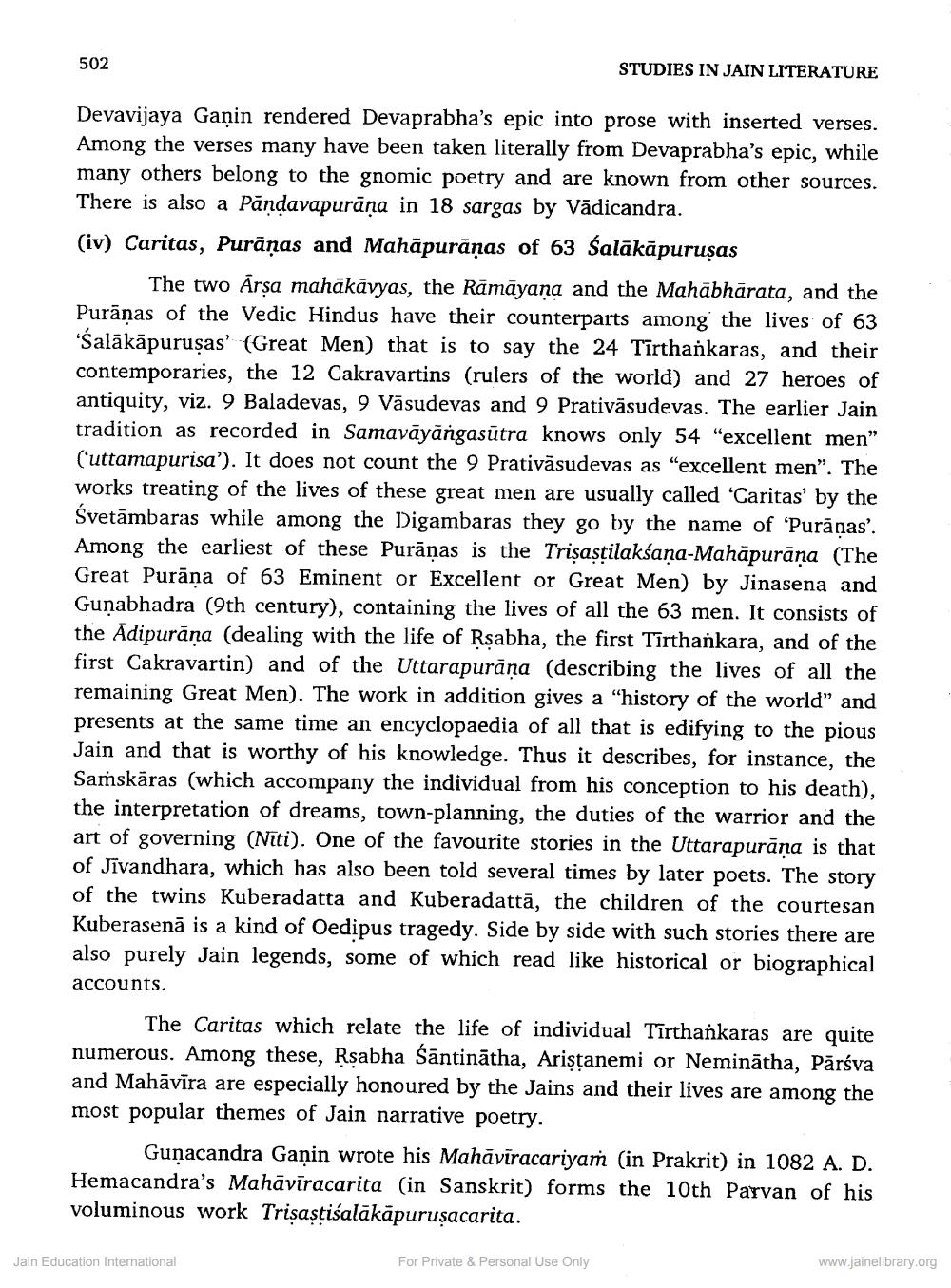________________ 502 STUDIES IN JAIN LITERATURE Devavijaya Ganin rendered Devaprabha's epic into prose with inserted verses. Among the verses many have been taken literally from Devaprabha's epic, while many others belong to the gnomic poetry and are known from other sources. (iv) Caritas, Puranas and Mahapuranas of 63 salakapurusas The two Arsa mahakavyas, the Ramayana and the Mahabharata, and the Puranas of the Vedic Hindus have their counterparts among the lives of 63 'salakapurusas' (Great Men) that is to say the 24 Tirthankaras, and their contemporaries, the 12 Cakravartins (rulers of the world) and 27 heroes of antiquity, viz. 9 Baladevas, 9 Vasudevas and 9 Prativasudevas. The earlier Jain tradition as recorded in Samavayangasutra knows only 54 "excellent men" ('uttamapurisa'). It does not count the 9 Prativasudevas as "excellent men". The works treating of the lives of these great men are usually called 'Caritas' by the Svetambaras while among the Digambaras they go by the name of 'Puranas'. Among the earliest of these Puranas is the Trisastilaksana-Mahapurana (The Gunabhadra (9th century), containing the lives of all the 63 men. It consists of the Adipurana (dealing with the life of Rsabha, the first Tirthankara, and of the first Cakravartin) and of the Uttarapurana (describing the lives of all the remaining Great Men). The work in addition gives a "history of the world" and Jain and that is worthy of his knowledge. Thus it describes, for instance, the Samskaras (which accompany the individual from his conception to his death), the interpretation of dreams, town-planning, the duties of the warrior and the art of governing (Niti). One of the favourite stories in the Uttarapurana is that of Jivandhara, which has also been told several times by later poets. The story of the twins Kuberadatta and Kuberadatta, the children of the courtesan Kuberasena is a kind of Oedipus tragedy. Side by side with such stories there are also purely Jain legends, some of which read like historical or biographical accounts. The Caritas which relate the life of individual Tirthankaras are quite numerous. Among these, Rsabha Santinatha, Aristanemi or Neminatha, Parsva and Mahavira are especially honoured by the Jains and their lives are among the most popular themes of Jain narrative poetry. Gunacandra Ganin wrote his Mahaviracariyam (in Prakrit) in 1082 A. D. Hemacandra's Mahaviracarita (in Sanskrit) forms the 10th Parvan of his voluminous work Trisastisalakapurusacarita. For Private & Personal Use Only www.jainelibrary.org Jain Education International




